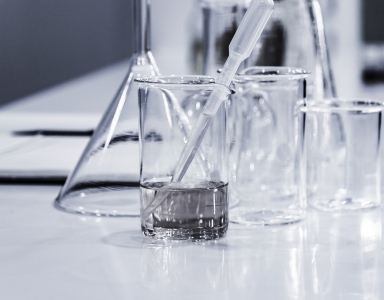Shell & TU/e – E2GO
Road traffic is a major source of air pollution in urban areas. It is also responsible for 21% of total European Union (EU) greenhouse gas emissions. These are urgent problems that need a solution. To solve these problems, the EU aims to ban the sale of new vehicles with an internal combustion engine from 2035 forward. Battery electric vehicles (EV) are the most likely alternative. The electricity consumption of charging EVs puts great pressure on the electric grid. To manage the load in the grid, battery storage can be added to fast-charging stations. Increasing the amount of battery buffers has another benefit: it facilitates the integration of electricity from intermittent renewable sources like wind and sun, leading to faster decarbonization on the electricity supply side.
Battery buffers, however, come at a cost. The required power conversions result in losses that increase with the rise in power, while power is what we need. Furthermore, there are several key components in fast-charging infrastructure that, through inefficiencies or high price levels, make them very expensive, which limits their rollout speed.
The solution
By creating a network of nine PhD students across Europe, and have them work together on new systems, components grid services, the project sets out to reduce the costs of battery-buffered fast charging stations by 20% and help manage the load of the electric grid.
The consortium
The E2GO consortium, led by the Eindhoven University of Technology, consists of leading universities, knowledge institutions and companies from across the EU and from across the value chain of fast charging equipment. The consortium enables the early-stage researchers to access the state of the art equipment and lab facilities to perform their research.
Funding with MSCA
To fund the researchers, the consortium applied for grants through the Marie Skłodowska-Curie Actions (MSCA) Doctoral Networks. Doctoral Networks is a type of grant that funds the training of a new generation of creative and innovative early-stage researchers. The grant application was a success: it received an impressive score of 99,2%, reflecting the quality of the consortium as well as the urgency of the problem.
Hezelburcht is proud to have supported the E2GO consortium in their sustainable efforts and contributions to a faster transition to electric driving.
Hezelburcht is the favoured supplier when putting in subsidy and grant requests. Hezelburcht was asked to assist the E2GO consortium members on this subsidy. It was a pleasure to work with Wouter Schilpzand and his team. They helped unite a somewhat disparate group of industrial, academic and small business partners and point the direction. The specialists at Hezelburcht are very responsive and fun to work with. They are masters at dealing with the bureaucratic and procedural requirements which can be a real stumbling block for non-experts in subsidy requests. In the whole trajectory, from finding the “right” subsidy to completing the submission, Hezelburcht guided us along and wrote the request based on our input. The high scores are substantially due to their professionalism, insight and expertise. - Michael Golombok, Full Professor at TU/e



